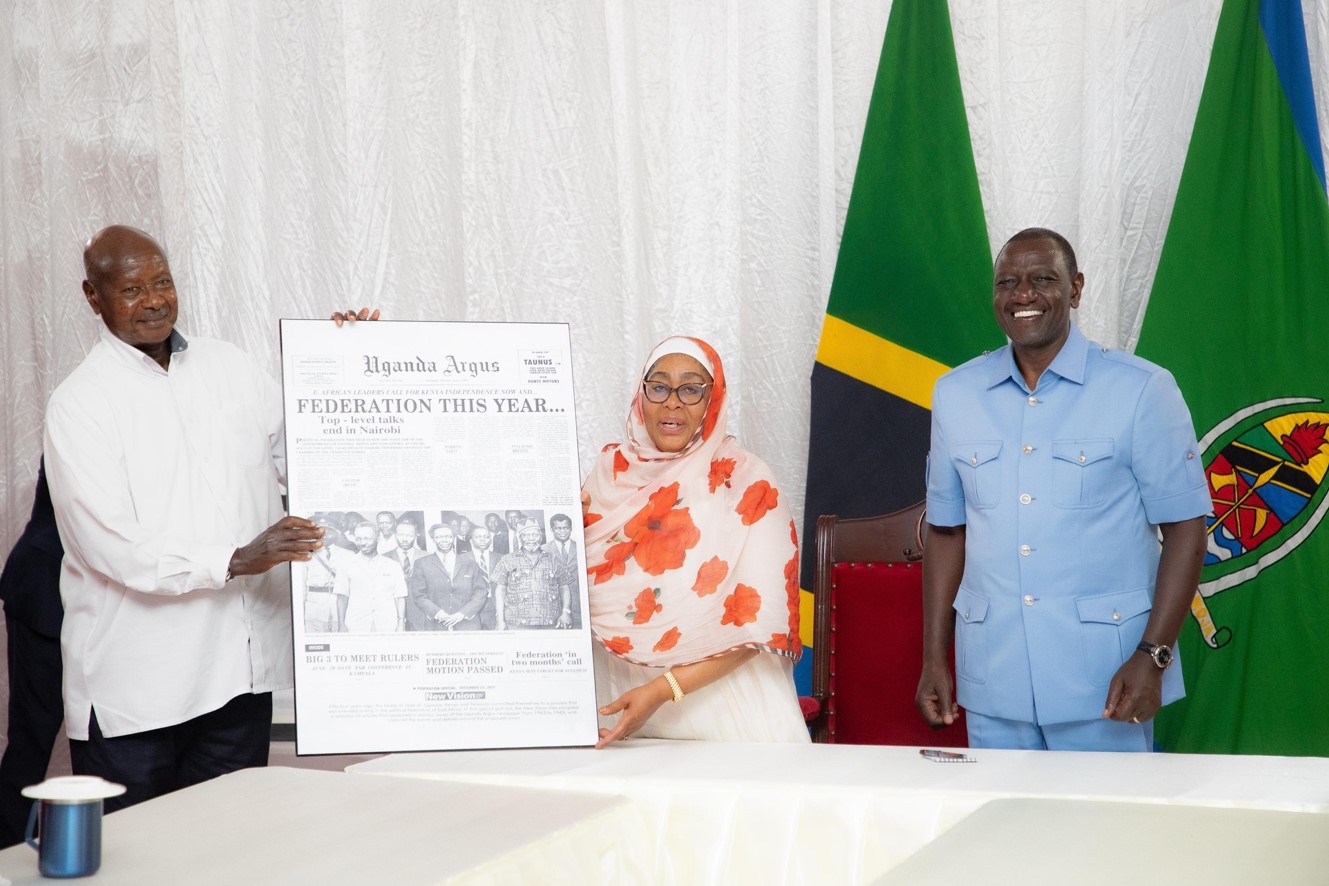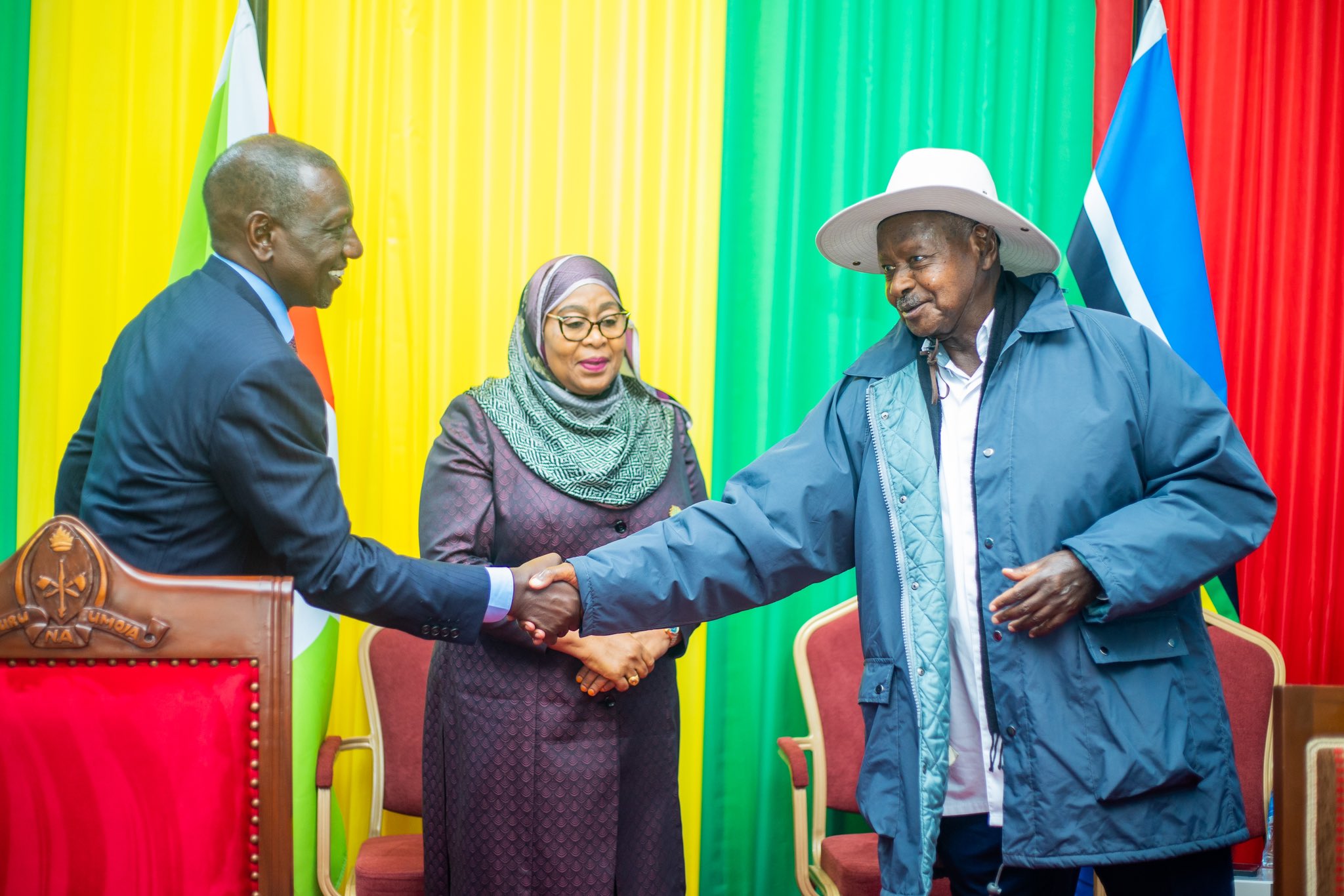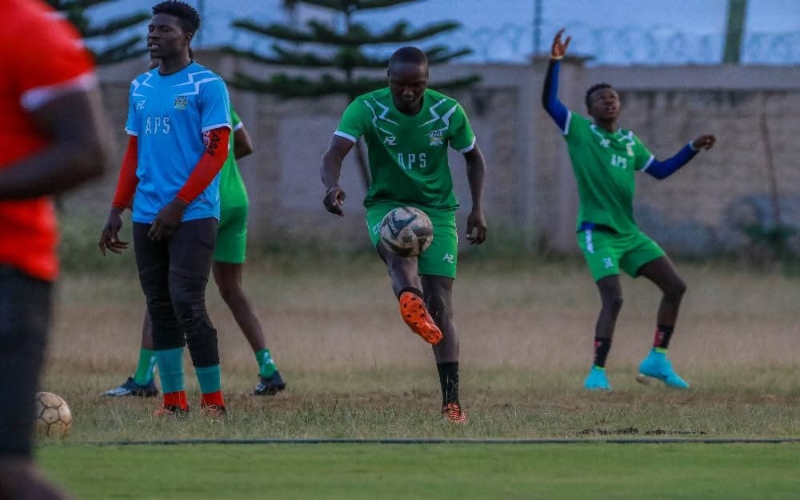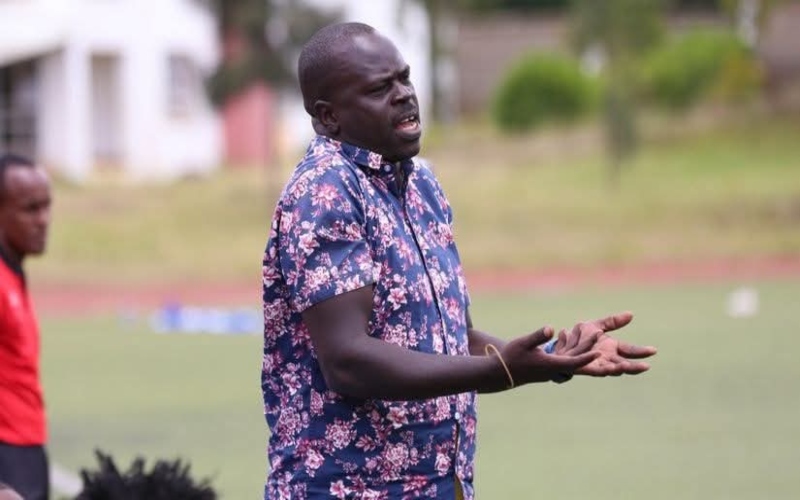Museveni reignites push for political federation of East African countries

“The old man with a hat” as he is popularly known suggested that the region has lost out on decades of potential progress due to this missed opportunity.
President Yoweri Museveni of Uganda has reignited the age-old debate surrounding the unification of East African states into a political federation, stressing the crucial need for bolstered relations among nations in the region.
Addressing the audience from State House Nairobi this May, Museveni highlighted the paramount importance of strategic security amidst escalating geopolitical tensions.
More To Read
- Wetang'ula warns EAC arrests over travel documents threaten regional integration
- EAC and AGRA rally young entrepreneurs to transform regional food systems
- EAC's Nairobi summit pushed to January amid regional tensions
- Museveni roots for unified East African military to address security threats
- Kenya dismisses war fears as Mudavadi quashes claims of Uganda ‘overrunning’ the country
- Somalia takes over leadership of EAC Speakers Bureau from Kenya
Reflecting on past instances where opportunities for unity were overlooked, Museveni expressed regret over the failure to establish the East African Federation in 1963 when it had three founding states (Kenya, Uganda, and Tanzania).
“The old man with a hat” as he is popularly known suggested that the region has lost out on decades of potential progress due to this missed opportunity.
"If we had formed the East Africa Federation in 1963, many of the problems that we have now would have been avoided," Museveni said, citing instances such as the reign of Idi Amin Dada in Uganda and the genocide in Rwanda.
Museveni advocated for a unified approach and said: "Our agenda is to create one government of East Africa."
The president with the longest tenure among the Heads of State in the East African Community (EAC) emphasised the imperative for the EAC to achieve its goal of forming a unified sovereign state.
He argued that such consolidation is vital for safeguarding and advancing the well-being of the region's population.
Despite ongoing struggles with integration and trade within the region, President Museveni has advocated for a step-down approach to a confederation, akin to a "Coalition of the Willing."
 From left: Kenyan President William Ruto, Tanzanian President Samia Suluhu and Uganda President Yoweri Museveni (left) during the 23rd Ordinary Summit of the EAC Heads of State in Arusha, Tanzania on November 24, 2023. (Photo: EAC)
From left: Kenyan President William Ruto, Tanzanian President Samia Suluhu and Uganda President Yoweri Museveni (left) during the 23rd Ordinary Summit of the EAC Heads of State in Arusha, Tanzania on November 24, 2023. (Photo: EAC)
While expressing his interest in spearheading the formation of the East African Federation, which stands as the fourth pillar of the EAC, his peers have seldom voiced their endorsement of his leadership in this endeavour.
However, William Ruto, a close ally of President Museveni, has openly supported the idea of Museveni assuming the role of "EAC president."
Ruto has urged Museveni to take the lead in pursuing the elusive goal of integration.
Vocal
Ruto's endorsement of Museveni's leadership aspirations within the EAC was evident during a state visit hosted by Ruto in May, where discussions about the political confederation took place.
Ruto has previously been vocal about this agenda, including a discreet trip to Zanzibar in March of this year, where the focus was on regional integration and the formation of a unified coalition government. Both Presidents Samia Suluhu of Tanzania and Museveni were present.
After gaining independence in the 1960s, Kenya, Uganda, and Tanzania established the East African Community, which was later disbanded and then reestablished.
Since the revival of the East African Community (EAC), the bloc has experienced numerous fluctuations, marked by both successes and challenges.
This period has seen the expansion of the EAC's membership to its current count of eight countries.
Museveni has previously argued that a federation would ensure security on land, sea, and air, given the multiple resources the countries enjoy.
“East Africa is a potential super-power of the league of India or China, etc., if we integrate economically and politically, assisted, fortunately, by the Swahili language, which is part of the heritage of this area,” he said.
He, however, acknowledged that there is little political will in pursuing his suggestions.
Last year, the national consultations for drafting the constitution for the proposed East African Community (EAC) Political Confederation were concluded.
But they have been very slow across the partner states.
Only three member states- Kenya, Uganda, and Burundi- have completed them.
Is this doable?
Dr Sylvanus Wekesa, a commentator on East African Community affairs, expressed his perspective, stating, “I think political integration is a deeper form of integration that EAC has adopted.”
He elaborated, “Achieving political integration will require addressing key issues such as a common foreign policy, peace and security, and good governance.”
However, he emphasised that the legitimacy and sustainability of the East African Political Federation depend on the economic development of each partner state.
“What is needed the most is a strong political will, which so far is weak,” he concluded.
In late April, the EAC Sectoral Council on Foreign Policy Coordination convened in Dar es Salaam to address interstate security and coordinate foreign policy efforts.
However, member states grapple with issues that impact them, including differing views on foreign policy.
Top Stories Today












































